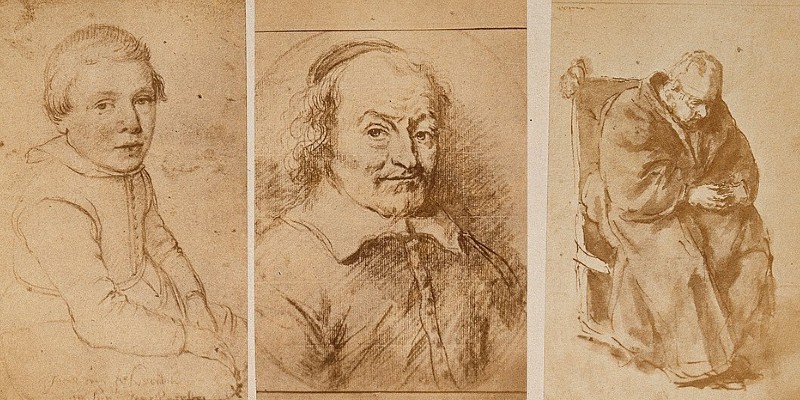
Plays, poems, politics and protest: Why Joost van den Vondel matters
This event has now finished.
Bowland Auditorium, Berrick Saul Building, Campus West, University of York (Map)
Event details
Most people who visit Amsterdam will notice the Vondelpark, and many will walk in it (Nigel has run round it many times) but have no idea how and why it got its name. Joost van den Vondel (1587-1679) is regarded as the most significant and consequential author in the Dutch language, the quintessential Amsterdam literary figure, and he has this reputation for a number of reasons that make him quite different from his comparable European contemporaries: Shakespeare, Lope de Vega, Ben Jonson, Pierre Corneille, Milton. Had he lived in our time, he would be a strong candidate for a Nobel Literature Prize, and we would think of him alongside Harold Pinter, Dario Fo and Mario Vargas Llosa.
In this lecture Nigel brings him to the global arena. Vondel lived in the Dutch Republic and was born just after this new state began to emerge through a revolt against what had become brutal Spanish governance. The cities of Holland, Amsterdam foremost among them, rapidly developed into the leading global mercantile power, a situation that coincided with Vondel’s lifespan. This was a new way of living, and Vondel’s writing gave voice to it: new freedoms in several ways, but very many risks – the possibility of great wealth, yet you might lose it in a day; a world in which ordinary citizens were still vulnerable to the whims of powerful princes, politicians and clergymen even within a kingless state. Vondel’s plays and poetry fearlessly exposed the risk and the violence at the heart of their world.
A master of shock tactics, he put the devil on stage as if he were a sexually jealous human in Lucifer (1654). His characters may have been grand, as in his most famous play Gysbreght van Aemstel (1638), but they spoke and felt like ordinary Dutch people, in a language that was both powerfully emotive, impressively literary and yet easily relatable for his fellow citizens. Nigel will explain in English how this worked in Dutch. Vondel dared to ask whether the great changes endured during his lifetime had been worth it and began to suggest an alternative vision for all of Europe. He was but a shopkeeper (specializing in ladies’ silk stockings), and latterly a low-level accountant, but through patient self-education mastered ancient literature, and through friendships with elevated intellectuals (only in somewhere as open as 17th century Amsterdam could this happen) made himself a distinctive social and political thinker, as well as fashioning a self-image as a literary legend.
It was an art of committed denunciation and one that demanded accountability. In his play Zungchin (1667) he even contemplated such matters on a global scale as he tackled the fall of an empire in China. He dared to speak truth to power and paid the price, lucky to avoid prison and worse, but punished with ruinous fines. In his lifetime he was admired in Germany and France as well as the Netherlands, but with the sobering drift of events in our world, it is certainly time to give him a bigger stage.
About the speaker
Nigel Smith is currently Co-Director of the Center for the Study of Books and Media at Princeton, to which he came from the University of Oxford, England, in 1999. He has published mostly on early modern literature, especially the seventeenth century; his work is interdisciplinary by inclination and training.
His interests have included poetry; poetic theory; the social role of literature; literature, politics and religion; literature and visual art; heresy and heterodoxy; radical literature; early prose fiction; women’s writing; journalism; censorship; the early modern public sphere; travel; the history of linguistic ideas. The authors he has covered include Shakespeare, Jonson, Donne, Herbert, Milton, Marvell, Hobbes, Margaret Cavendish, Katherine Philips.
His major works are Andrew Marvell: The Chameleon (Yale UP, 2010; pbk 2012), a TLS ‘Book of the Year’ for 2010, Is Milton better than Shakespeare? (Harvard UP, 2008), the Longman Annotated English Poets edition of Andrew Marvell’s Poems (2003, pbk 2007), a TLS ‘Book of the Year’ for 2003, Literature and Revolution in England, 1640-1660 (Yale UP, 1994) and Perfection Proclaimed: Language and Literature in English Radical Religion 1640-1660 (Oxford UP, 1989). He has also edited the Journal of George Fox (1998), and the Ranter pamphlets (1983; revised edn. 2013), and co-edited with Nicholas McDowell the Oxford Handbook to Milton (Oxford UP, 2009, pbk 2011).
New work, The State and Literary Production in Early Modern Europe, involves the comparison of English with literatures in other European (especially Dutch, German, French and Spanish) and some oriental vernaculars in the context of political and scientific transformation between 1500 and 1800. With Sara Poor he is editing Mysticism and Reform (Notre Dame UP), a collection of essays mapping the passage of mysticism from the medieval to the early modern worlds.
